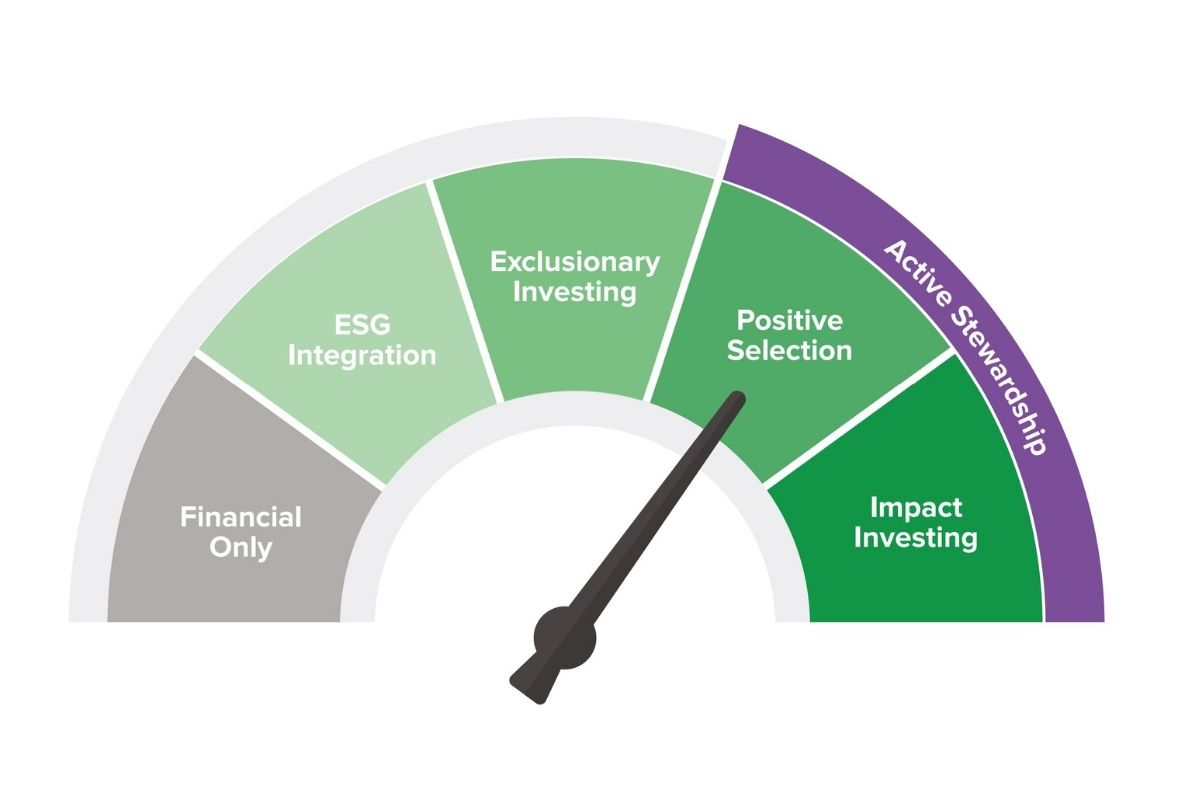In this article, Steven Rowe reflects on how the literal storms of January mirror the turbulent political, economic, technological, and environmental climates affecting our investments. With insight and humour, he explores how these forces shape our financial futures—and why ESG investing might matter more than ever. As uncertainty grows, our ability to adapt and stay grounded in sound planning becomes essential. Let’s take a closer look.
.jpg)
Introduction
January blew hot and cold. Well, mainly cold. Storm Éowyn battered Ireland and the UK with winds of over 100 miles an hour as another unusually strong storm hit us. In California, wildfires raged as unusually strong Santa Anna winds on unusually dry ground fanned flames that destroyed homes that had stood for over a hundred years.
Unusually, this struck a chord with me, as I waited at the train station waiting for my train, delayed by the unusually strong storm that had blew debris and trees over tracks across the country.
There are so many ‘climates’ that are perceived to affect our investment outlook as we diligently save for the sunny horizons of our future. Where the only real climate change, we want to experience awaits, that is that place in the sun (metaphorically) in warmer climes. So, let’s take a look at them; how they could affect our investment returns and importantly, what to do about it.
Political / Economic Climate
January saw Donald Trump sworn in as President of the USA whereupon he renamed the Gulf of Mexico the Gulf of America. It’s a beautiful name, a beautiful name. But maybe not so wise if sea level change causes it to flood New Orleans making it permanently uninhabitable?
Although, I guess it’s better to be en’gul’fed (see what I did there?) by America than Mexico? Unless you’re a Greenlander or Canadian…
Anyway, Geography may not be his strong point. Maybe economics is? That’s up for debate, since Forbes Magazine once printed an article saying if he invested his inheritance in the stock market, he would be wealthier than he is now and not have been bankrupt a few times (Forbes Magazine, October 2021)*. That was 2021 though, I am not sure of the situation now. And funnily enough, he is not a client of Lucent Financial Planning!
We’re not big fans of property investments, and also, he would have his feet up and be enjoying himself if he went on our retirement planning course, where we concentrate on psychological reasons people can sometimes not allow themselves to give up work. Perhaps all American presidents should go on this?
I digress, as usual.

Political climate change seems to be coming, not just in America but perhaps the rest of the world. Countries such as the US aiming to follow Argentina in slashing government costs, reducing taxes and aiming to boost growth that way. Trump’s infliction of tariffs on imports from China, Canada, and Mexico (Europe next?) are sure to have negative influence on the world economy. These are likely to be inflationary as these tariffs are simply passed on to the consumer and will also cause other countries to strike back with their own tariffs. This, in turn will have its effects on the stock market as it causes lower and slower profits around the world.
Of course, it could be a short-term negotiating position for Trump. The man loves a deal! So maybe just making it uncomfortable for other countries. Either way, this tougher negotiating stance and unpredictability will surely spook stock markets. Probably starting the day this newsletter is released.
When long term volatility of stocks markets is 14% a year – every year – then be prepared for more of that, as it has been unusually stable over the past couple of years. You have earned money in this time, how you react in the coming years will determine if you keep it.
How do you react to changes in economic climate?
- You don’t.
- Reacting to uncertainty means you are more likely to lose out. Don’t be that person!
- You stick to your financial plan and only change it if you want your life to change.
Technological Climate
The development and therefore the money in Artificial intelligence has so far been centred on the US. With companies such as Google, Nvidia and Microsoft all having significant boosts in the value of their shares in the past couple of years. It’s surely going to change the world, hopefully for the better. I’m certainly looking forward to it doing some of my admin! But then… a company in China called Deepseek appears and boom! Nvidia loses 17% of its value in one day, as Deepseek uses less silicon chips than other AI and that’s what Nvidia makes its money on. 17%, you think is not so much, but it’s $600 billion dollars!
In such developing technology there are going to be winners and losers. You will remember the dotcom bubble of the late 90’s. Most of the largest companies in this area at that time (the 90s) are not around today, in any significant form. Only really Microsoft has retained its position in the top 20 companies in the world.
What this means: We don’t know, you don’t know, if Nvidia don’t know and lose $600B then we have no chance! So, hence our preferred investment strategy we call ‘power factor’ where we buy the whole market but with larger amounts in small and value companies. The stock market gains of the past few years have been centred on the ‘Magnificent 7’ but as the benefits trickle down to smaller companies, or newcomers come along like Deep Seek, if they are on the stock market but are tiny, you will own them and benefit.
Again, the answer is to sit down, crack open a nice drink (alcoholic or otherwise) and ignore this stuff in the media. Except in my newsletter, we have talked about this before, listen and adhere to everything I say and ignore all other media.
Real Climate Change

The World Meteorological Organisation (WMO) said that 2024 was the hottest year on record and the first to exceed 1.5 degrees above the preindustrial average. What does this mean? Well, I think it means life will be very different in the future, as us humans were too thick to look at a graph and make correct conclusions without letting our highly conflicted interests and biases overrule us. But we always knew that would happen, didn’t we?
So, we’ve only really got AI to save us. Or human ingenuity. Which is what I am counting on and that doesn’t mean going to Mars! Where incidentally, it’s a lot colder than the pre-industrial average and the food delivery services take a lot more than 30 minutes. I am positive we can get ourselves out of this! There will be a couple of clever boffins that crack this nut to save us all. But, maybe we need to give them a little more time. Otherwise, there will be mass migrations north as the world heats up and southern climes become uninhabitable. Don’t you think it’s curious that those that are so anti-immigration are also those that are so happy to burn oil and gas rather than renewable energy? Is it time to connect the dots?
This brings us on to the whole point of this article.
ESG Investing
This stands for ‘Environment, Social and Governance’ and is a way of evaluating whether to invest in a company based on these standards. Traditionally, no one cared! It was purely about the numbers and whether it was likely to earn money or not. There was much less concern about environmental impact. Although of course, over the long arc of history there has been more care about the ‘social’ impact companies have. Regulators and public demand has made this a more popular approach in recent years, with Global ESG assets are on track to exceed $53 trillion by 2025 according to McKinsey and the Global Sustainable Investment Alliance. Which is about a third of the total investment market.
- Environmental – conservation of the natural world: e.g. Climate change, deforestation, and biodiversity
- Social – consideration of people and relationships: e.g. human rights, labour standard and Gender & Diversity
- Governance – standards for running a company: e.g. Whistleblowing standards, anti-bribery & corruption
Source: https://www.cfainstitute.org/insights/articles/what-is-esg-investing
What are the Arguments, For and Against ESG Investing?
It depends on your standpoint. What do you want to achieve? If maximising profit is your aim, then from an investment theory standpoint, you are more likely to make most money by having a maximum diversification and spread of investments. Therefore, screening out investments means, theoretically, you could earn less from your investments. Academic research indicates that responsible investing does not harm returns. Analysis by Busch, Friede, and Bassen (2015) reviewed over 2,200 empirical studies and found that in about 90% of the cases, incorporating ESG criteria did not negatively affect financial performance.

So, what is your view? Personally, I don’t mind earning less on my investments if I have less negative impact on others. I don’t want to invest in companies that have kids working for them in poor conditions, so I profit. I don’t want to own companies that make things that blow stuff / people up. I’m not that bothered about smoking or drinking, do what you want. But I also understand that some people can’t stop themselves from doing this and they cause harm. So, I don’t want to profit from that. I just want do drink it myself!
Some will argue that ‘The market’ will take care of this for us anyway. People don’t like to use the products and services of companies that cause harm, so they make less money, less new entrants want to set up businesses where profits are falling and so share prices fall. Which discourages investment and therefore means less companies are set up! And so, it goes around.
Others argue that not investing in companies that are consider ‘bad’ means that they have no choice but to carry on doing what they are doing! Because that’s how they know how to make money. If they are getting less investment, then where is the incentive to change? For example, if you are a company with a couple of billion in oil underground, and you can’t get investment money to build wind turbines, say, what are you going to do? Drill, baby, drill!
How Are ESG Factors Implemented in Our Portfolios?

- Financial Only - Investment decisions based solely on financial analysis without regard to Environmental, Social, and Governance (ESG) factors.
- ESG Integration - The inclusion of some ESG factors into traditional financial portfolios to improve sustainability.
- Exclusionary Investing - The practice of omitting specific sectors, companies, or practices from a portfolio based on ESG criteria.
- Positive Selection - Selective investment in companies that not only meet ESG criteria but also stand out as sector leaders in sustainability practices.
- Impact Investing - Selective investments in companies with the intention to generate maximum social and environmental impact.
We choose positive selection because it is so hard, almost impossible to exclude everything we would want. Every company, dare I say it, person, is a little bit naughty when it comes to ESG. For example, we probably print too much, have the office too hot and we are a simple professional services firm. As a person, I eat meat and go on planes (although I hate flying as it’s so uncomfortable, I do try to avoid it). I live in a country where I pay taxes that are used to send arms to places, I don’t want them to go. I can’t really avoid that without doing prison time.
The following are examples of how the ESG portfolios screen out undesirable features of companies:
Investment Performance
The chart below is an efficient frontier chart. Along the X axis (the bottom) is ‘risk’ in the form of volatility. The further to the right the more risk is taken. The Y axis is return. Each dot represents a portfolio in 10% increments from 10% equities to 100% equities.
The ‘green’ fund is the ESG portfolios, and you can see over the past 5 years they have under performed ones without any investment screening for ESG.

However over 7 years, the reverse is true and the ESG portfolios have performed better!

To conclude, ESG investments do not necessarily mean poorer investment returns, as studies have shown. It is impossible to exclude every undesirable feature you would want to as everyone is a little bit naughty, but you are able to influence the world through your money. So, do you want to? It may be the market does it for you anyway, or that diverting money away disincentivises companies to change. Or it may mean that they cannot raise investment and so are compelled to change. I am sure it is a variety of these. You should make your decision based on your own principles and what you want to support. But, whatever you do, it will have an impact, just probably not on you.
Disclaimer: This article does not constitute financial advice. We recommend that you speak to a qualified financial planner for advice tailored to your individual circumstances and goals. Financial markets may go up or down, and you are not guaranteed a return on your investment. Past performance is not necessarily a guide to future performance.
*When clicking a link to an external website, Lucent Financial Planning Ltd cannot be held responsible for the content of the external website.


.jpg)
.jpg)










